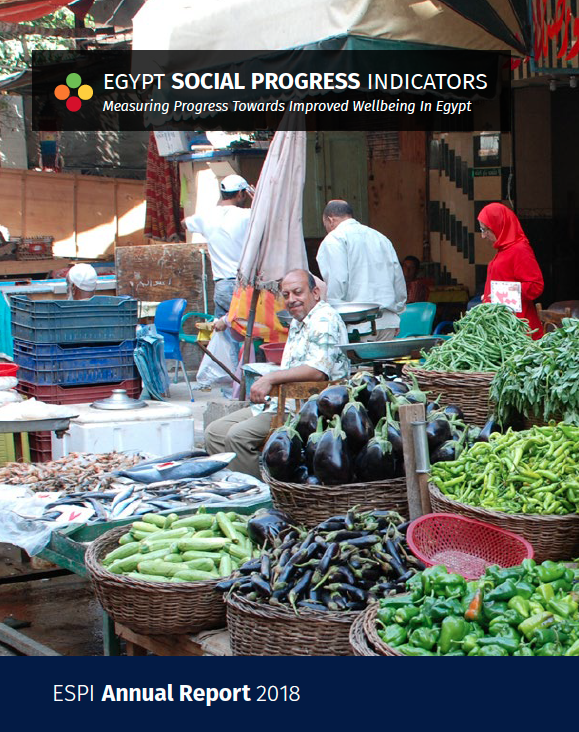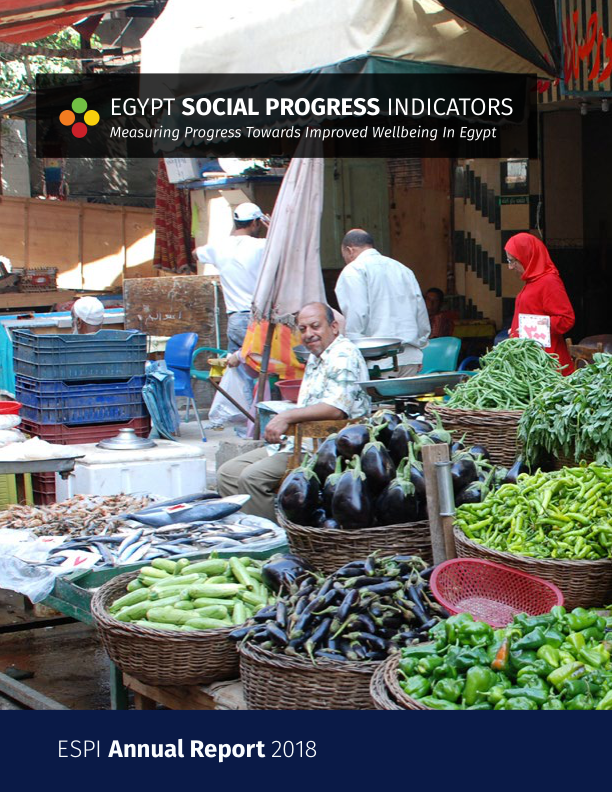
After one year of data collection and analysis, the Egypt Social Progress Indicators (ESPI) project has published the first independent, systematic review of socioeconomic development in Egypt—the Annual Report for 2018: Measuring Progress Towards Improved Wellbeing in Egypt.
Despite the official narrative of macroeconomic success encouraged by the Egyptian government, the International Monetary Fund (IMF) and other international organizations, and although socioeconomic rights deprivations were major catalysts of the 2011 revolution, Egypt is not on track to achieve equitable and sustainable development by 2030. By implementing and enforcing IMF-mandated austerity policies, Egypt continues to amplify already severe inequalities, undermining ordinary people's wellbeing and economic and social rights.
The ESPI project seeks to understand Egypt’s development in a holistic manner that goes beyond traditional measurements like Gross Domestic Product (GDP). Instead, ESPI uses CESR’s OPERA framework to demonstrate that human rights can provide concrete criteria for evaluating government policies.
The in-depth data analysis, developed by CESR, the Egyptian Center for Economic and Social Rights (ECESR), the Egyptian Initiative for Personal Rights (EIPR), the Social Justice Platform, Aspiration Tech and Backspace, and supported by numerous independent researchers and field experts, finds that ordinary people are experiencing significant rights deprivations pertaining to decent work, quality accessible healthcare and education, adequate housing, economic empowerment and secure livelihoods.
To protect socioeconomic rights, the report recommends legislative reforms, the expansion of social protection programs like social housing and social health insurance, the enhancement of corporate tax collection efficiency and the curtailment of tax evasion, among other strategies.
